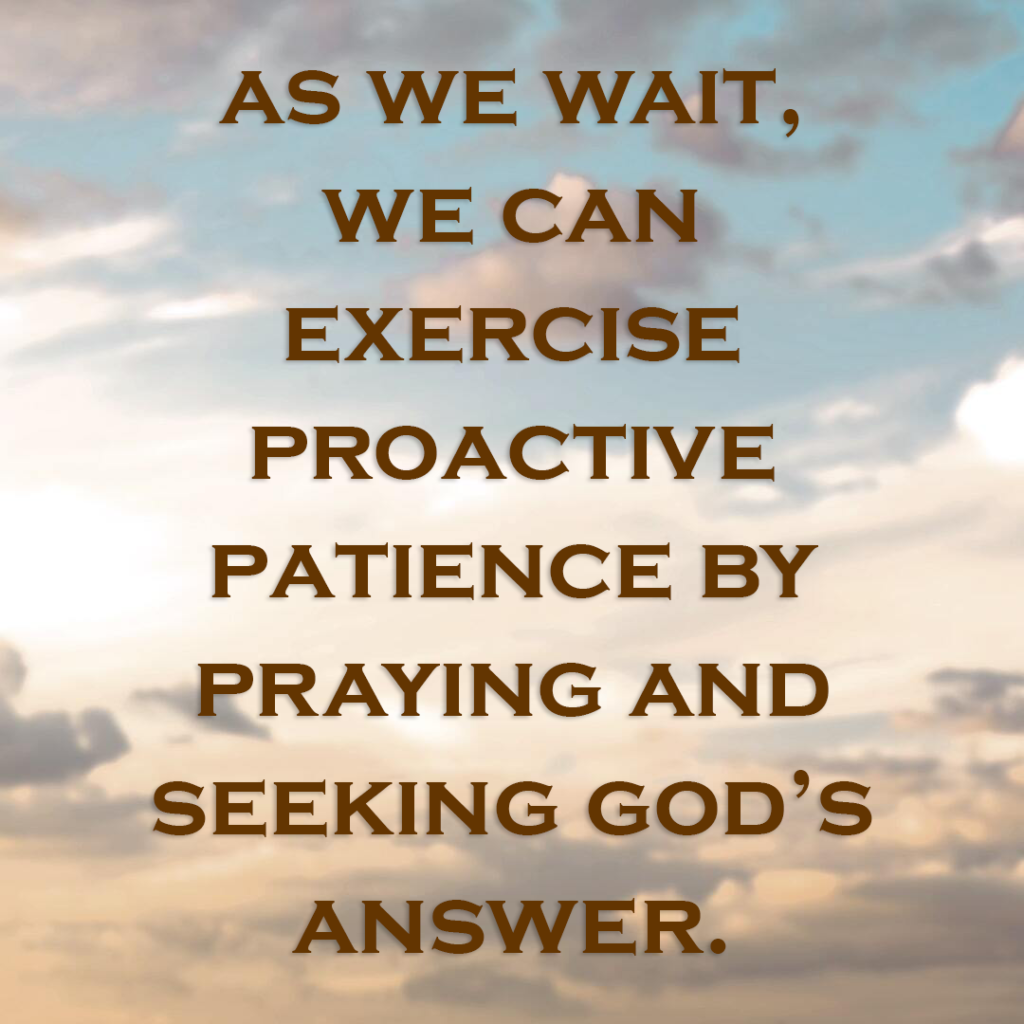When American novelist and playwright William Goldman asked his two young daughters what he should write his next novel about, one said, “Write about a princess,” and the other said, “Write about a bride.” So he wrote The Princess Bride, published in 1973. Even though Goldman had won two Academy Awards for screenplays and wanted to sell his novel to a movie studio, The Princess Bride almost didn’t make it to the big screen.
For fifteen years, William Goldman tried to find a studio to produce his movie. Finally, a young and naïve (now famous) director named Rob Reiner, who loved The Princess Bride as a novel, called Goldman to see why there was no movie version. They secured funding and released the movie in 1987. Since then, it has appeared on several lists of best movies.
Asking Is Good
And Waiting Is Good
4 Steps for Discerning God's Will
Asking Is Good
Pitching a movie idea for fifteen years required great persistence and boldness. And it reminds me of an illustration Jesus used to teach His disciples how to ask for things from God.
Jesus told a parable about a man who had a guest arrive in the middle of the night, tired and hungry from his journey. The man had no food on hand to give to his guest, so he went to a neighbor and asked to borrow three loaves of bread. Roused from his bed, the neighbor was none too happy with his neighbor’s untimely request. He objected, but to no avail. He finally gave in “because of [the man’s] persistence” (Luke 11:1-8). It’s important not to draw a close parallel between us and God and the persistent man and his neighbor. God is not a grouch who resents midnight calls. On the other contrary, Jesus commends the man’s persistence and boldness. There was a legitimate need; the neighbor had the needed resources; and the man asked and asked—respectfully, apparently—and made his case until the answer came. Persistence, Jesus said, not friendship, resulted in the granted request.
Later, Jesus explained what persistence means: asking, seeking, and knocking (Luke 11:9-10). In Greek, each of those verbs appears in the form of a command that suggests ongoing action. When you need an answer from God, Jesus was saying, “Keep on asking, and you will receive what you need. Keep on seeking, and you will find. Keep on knocking, and the door will be opened to you.” And then He said, “For everyone who asks, receives. Everyone who seeks, finds. And to everyone who knocks, the door will be opened” (Luke 11:10, NLT).
So what is Jesus’ message to us? He is saying that asking is good! We might call this repeated asking in faith proactive patience. When seeking permission from God, there may be waiting involved—just as the man seeking bread for his guest didn’t receive it immediately. But as we wait, we can exercise proactive patience by continuing to pray and seek God’s answer.

I believe God sometimes withholds His answer because He is more concerned with building our faith or maturity. And I also believe that His answer often comes as we proactively and patiently seek Him and His will through prayer and Bible study. Seeking God’s permission is not a matter of asking once and then going about our business. If the man in Jesus’ parable had done that, his guest would have gone hungry.
And Waiting Is Good
Grace Hopper was a pioneer in the development of modern computing who died in 1992 at age 85 as a highly decorated Rear Admiral in the United States Navy. She described her legacy this way:
The most important thing I’ve accomplished... is training young people. They come to me, you know, and say, “Do you think we can do this?” I say, “Try it.” And I back ‘em up. They need that. I keep track of them as they get older and I stir ‘em up at intervals so they don’t forget to take chances.1
Based on those words, it’s easy to see why Admiral Hopper is credited with originating the phrase, “It is often easier to ask for forgiveness than to ask for permission.” But I would not recommend that approach for seeking permission from God. When it comes to asking God for His approval, it is far better to wait on His timing than ask for His forgiveness.

Too often, Christians take this perspective when faced with a decision: “We need to decide now; we don’t have time to wait for an answer from God. Besides, He will forgive us if we make the wrong decision.” In short, they’re saying, “God has to forgive us—it’s His job!”
God is undoubtedly forgiving. But His job—or purpose, to use biblical terms—is to conform us to the image of His Son, Jesus Christ (Romans 8:29). God bases His answer, whatever it may be, upon that purpose, the variables of which go far beyond our understanding (Isaiah 55:8-9).
4 Steps for Discerning God's Will
When a group of businessmen made plans to move to a new city and open a new, profitable business, a wise man asked them, “How do you know what your life will be like tomorrow? Your life is like the morning fog—it’s here a little while, then it’s gone. What you ought to say is, ‘If the Lord wants us to, we will live and do this or that’” (James 4:14-15, NLT).
So how do we recognize the Lord’s will? How do we go about seeking His permission when God has not yet said, “Go”?
Keep these steps in mind:
- Be prepared. This applies in both directions: If it’s something you’re reluctant to do, be prepared for God to say “Go!” If it’s something you want to do, be prepared for God to say “No!” Jesus once told a group of religious leaders who doubted His words, “If anyone wills to do [God’s] will, he shall know” (John 7:17). Jesus was talking about doctrine, but the principle applies in broader ways. Why would God reveal something to us that He knows we’re not willing to hear?
- Be persistent. This doesn’t mean that we hound God for an answer. Rather, it means we make ourselves available to Him—standing continually just outside His door—as we wait for permission. Searching for approval can be hard work (Proverbs 2:3-4). Just as asking for permission requires asking—and sometimes we have not because we ask not (James 4:2). Every time we ask God through prayer by faith (Luke 11:11), we make ourselves available to hear His counsel.
- Be patient. We have to remember that God doesn’t view time as we do. A day to God is like a thousand years to us (2 Peter 3:8). In metaphorical terms, waiting one day for an answer from God can seem like a thousand years! But it’s not. Rest in His perfect timing.
- Be purposeful. When it comes, God’s permission is purposeful—and it should be to us as well. Whether God says “Go” or “No,” act on what He says. Calling Jesus “Lord” means doing what He says (Luke 6:46).
A “Go!” from God is great, but there is a maturity to be gained from waiting for His timing. Call to Him, and He will answer you (Jeremiah 33:3). Wait for permission rather than relying on forgiveness.
This article originally appeared in Turning Points devotional magazine.
